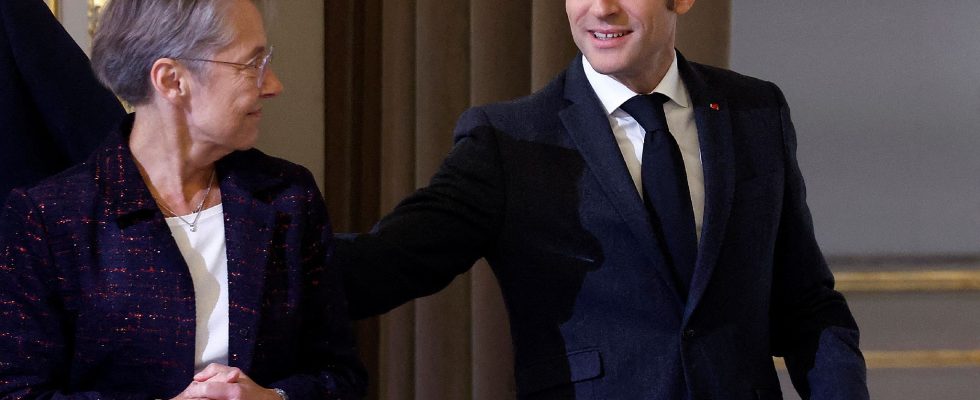“Why hide it, General Jaruzelski’s visit to France [le chef de l’Etat polonais] troubled me personally”: we are on December 4, 1985, and Prime Minister Laurent Fabius calls the National Assembly to witness to distance himself from François Mitterrand. It is a thunderclap, as the young socialist owed everything, his career as his post, to the first left-wing president of the Fifth Republic.Two months after his appointment, the same had already let go, in a carefully considered sentence, pronounced during the flagship political program of the time, The hour of truth : “I’m going to make a revelation to you: Him, it’s him, and me, it’s me.”
The problem is not new: a president and a prime minister regularly seek to define the right distance that must exist between them. Since her arrival at the head of the government, Elisabeth Borne had been careful not to advance on this inevitably slippery ground. But then during a dinner on Tuesday, March 28, half a dozen ministers allow themselves to do what is not usually done: put their feet in the dish. In this case, wondering how the head of government can “take off”, sic, from the president. One of the participants in this agape made up of several supporters explains that it “was never a question of putting a wedge between the president and the Prime Minister” but of explaining that “its singularity is its added value, including including for the Head of State”. And by singularity, it was necessary to understand: “Incarnation of the step-by-step strategy, everyday subjects, resumption of dialogue.”
Ten days later, takeoff was successful. Confidences of Elisabeth Borne reported by the press – “The unions must not come out humiliated from this sequence”, she says, calling for “respecting a period of convalescence”, writes The world – lead the Elysée to react firmly from China: “The course has been set by the president.” To believe that the Château does not really like singularity. Emmanuel Macron’s team – who is not the last to suffer from a lawsuit for authoritarianism in public opinion – could have chosen to welcome the exit of the Matignon tenant positively. To accompany him… She did the exact opposite. What further emphasizes the contrast between the two heads of the executive. Who is the good cop? Who is the bad cop?
Emmanuel Macron’s television interview on March 22 did not contribute to household peace. Elisabeth Borne certainly assures in the process that she sees no malice in the little presidential phrase “I hope she will get there”, which Emmanuel Macron dropped after asking him to build a government program and to expand the majority. But she knows very well that the president never says anything at random. There is something else: the Head of State clearly indicated that it was the Prime Minister who had decided to use 49.3. For once, she winces a little: all the meetings that led to this decision took place in the presence of both him and her…
Points of contention
Points of contention exist between the two heads of the executive. Alliance or not? The Elysée seems to push, when Matignon considers since the first day that it is impossible and prefers the strategy of the text by text. And then, “enlarge the majority”: is there a more effective foil for opposition, especially in the eyes of Republicans who dream of becoming kingmakers precisely outside this majority? The Prime Minister, who is aware of this, must deal with…
What role for trade unions? By his Chinese remarks, Emmanuel Macron added fuel to the fire, at the very moment when Elisabeth Borne was looking – without finding them for the moment – for ways of “appeasement”, to use the word reported by The world this Friday, April 7. And if the famous steps aside that we attribute today to the tenant of Matignon were in reality more to be detected in the President of the Republic? The Prime Minister has not varied her speech so much in recent weeks when the head of state’s rectitude makes it appear more and more like her negative.
This standoff, obviously denied immediately after being launched, has a disadvantage and an advantage for Elisabeth Borne. Admittedly, the presidents hate that the slightest divergence is displayed in the public square; but here is the head of government who is putting herself in a position to leave with her head held high if she is shown the direction of the door in the coming weeks. She will have made her difference heard, she will have sent a signal to this left which she has always wanted to be close to, even if the pension reform has clearly moved her away. He is him and she is her.
